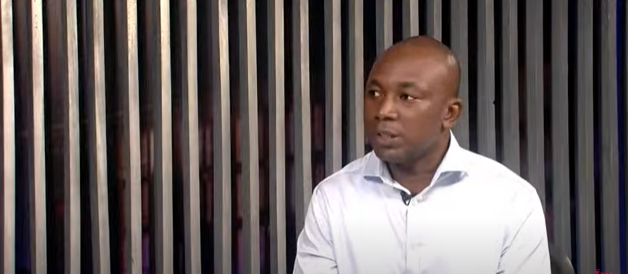An Economist at the University of Ghana Business School (UGBS), says the current form of the debt exchange programme will systematically weaken the balance sheets of participating financial institutions.
Professor Godfred Bokpin, said this is because the approach used by government to formulate its debt operation policy was completely wrong and very lopsided in favour of government interests at the expense of the financial institutions and the general investor community.
According to him, with the International Monetary Fund reaching a staff level agreement with government the burden has now shifted to government to ensure that the staff level agreement reaches the Fund’s executive board.
This will only be achieved if the government is able to get both domestic and foreign investor communities to buy into the debt exchange programme.
However, Prof. Bokpin speaking on JoyNews’ PM Express stated that the general pushback the debt exchange programme has faced suggests that government would have to initiate engagement with key stakeholders and restructure the operation such that the burden is shared evenly between government and investors.
“Because now, this involves trading off money, people’s hard earned money. People traded off consumption over the years in order to invest in government securities because they want to consume more in future. But now what is happening is that people are actually seeing their money actually going.
“Already inflation has reduced it to negative returns; marking to market has already imposed some haircuts on them. So perhaps the question is, should it get worse than this? But that is where we are. A certain level of haircut seems unavoidable, but government should accommodate investors in choosing the style of the haircut that they would want to have.
“That should also not be an imposition. Essentially what I am saying is that some level of discussion, consultation is needed. The debt exchange in its current form will actually weaken systematically the balance sheet of the participating financial institutions,” he said.
Latest Stories
-
IPR Ghana congratulates citizens for peaceful election, calls for unity
8 minutes -
Bawumia’s 8 minutes elite ball that zapped the energy of trigger happy politicians
57 minutes -
It will be a betrayal if National Cathedral saga does not feature in ORAL’s work – Ablakwa
1 hour -
‘It’s unfortunate we had to protect the public purse from Akufo-Addo’ – Ablakwa on ORAL Team’s mission
2 hours -
Congo lawyers say Apple’s supply chain statement must be verified
2 hours -
Stampede in southwestern Nigerian city causes multiple deaths
3 hours -
Tens of thousands without water in Mayotte as curfew brought in
3 hours -
ORAL: We won’t witch-hunt, we’ll focus on transparency, not revenge – Ablakwa
3 hours -
Attempted robbery: Accused claims he carried cutlass for protection
4 hours -
Excavator operator jailed for stealing
4 hours -
African fans age-shame me for putting on some outfits – Tiwa Savage
4 hours -
Tiwa Savage criticised by female fans for stance on cheating in relationships
4 hours -
Bank of England expected to hold interest rates
4 hours -
Congo river boat sinks killing at least 22
5 hours -
Nigeria approves Shell’s $2.4 billion asset sale to Renaissance
5 hours

